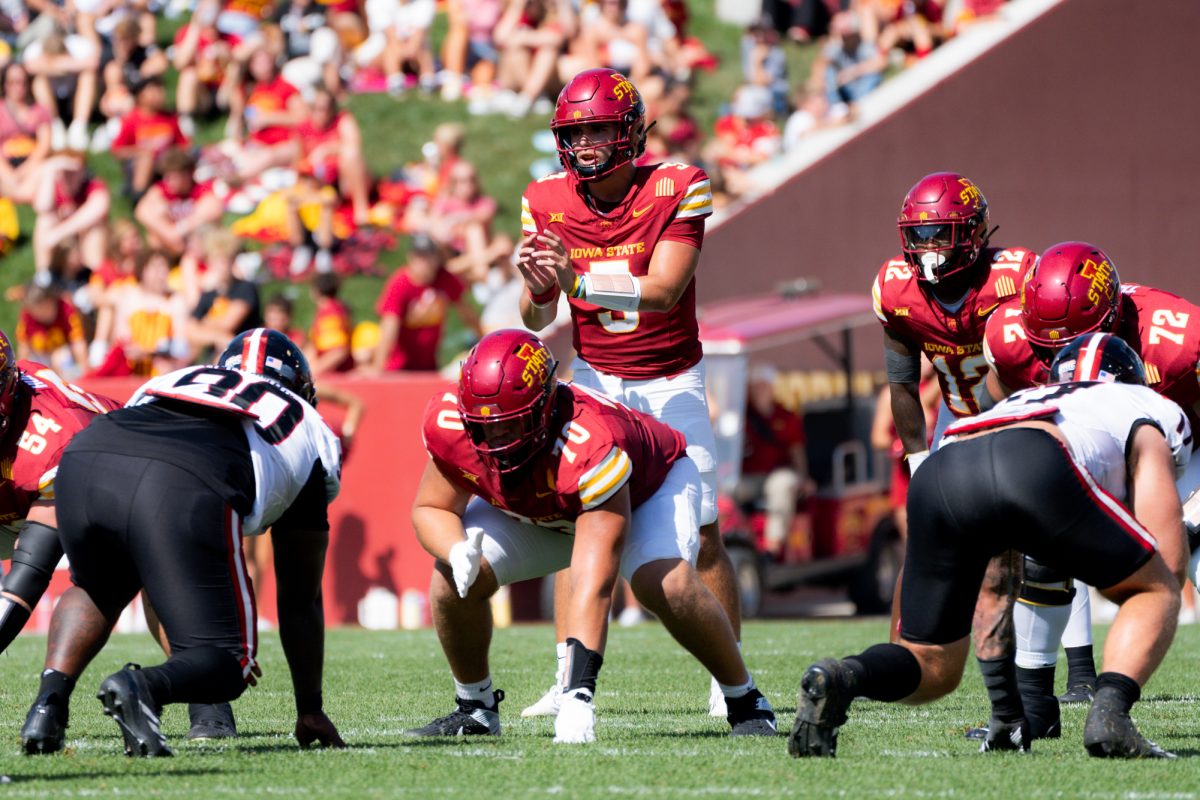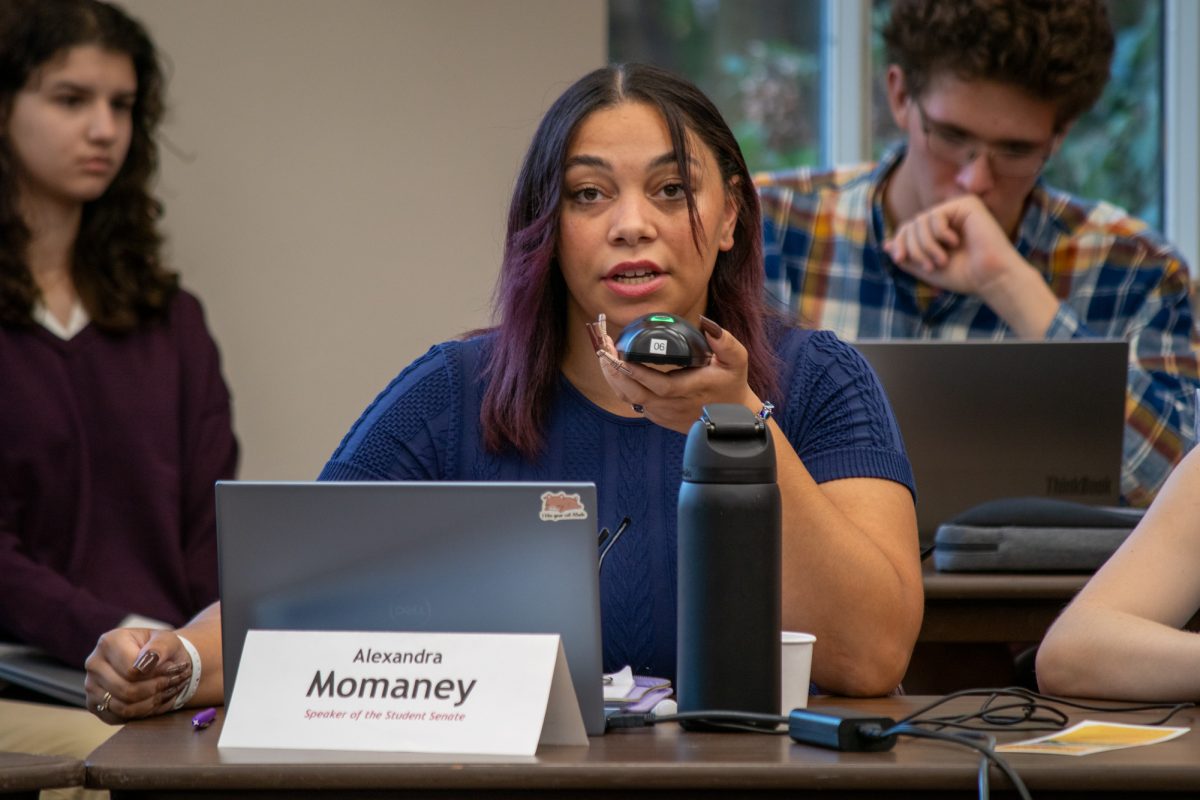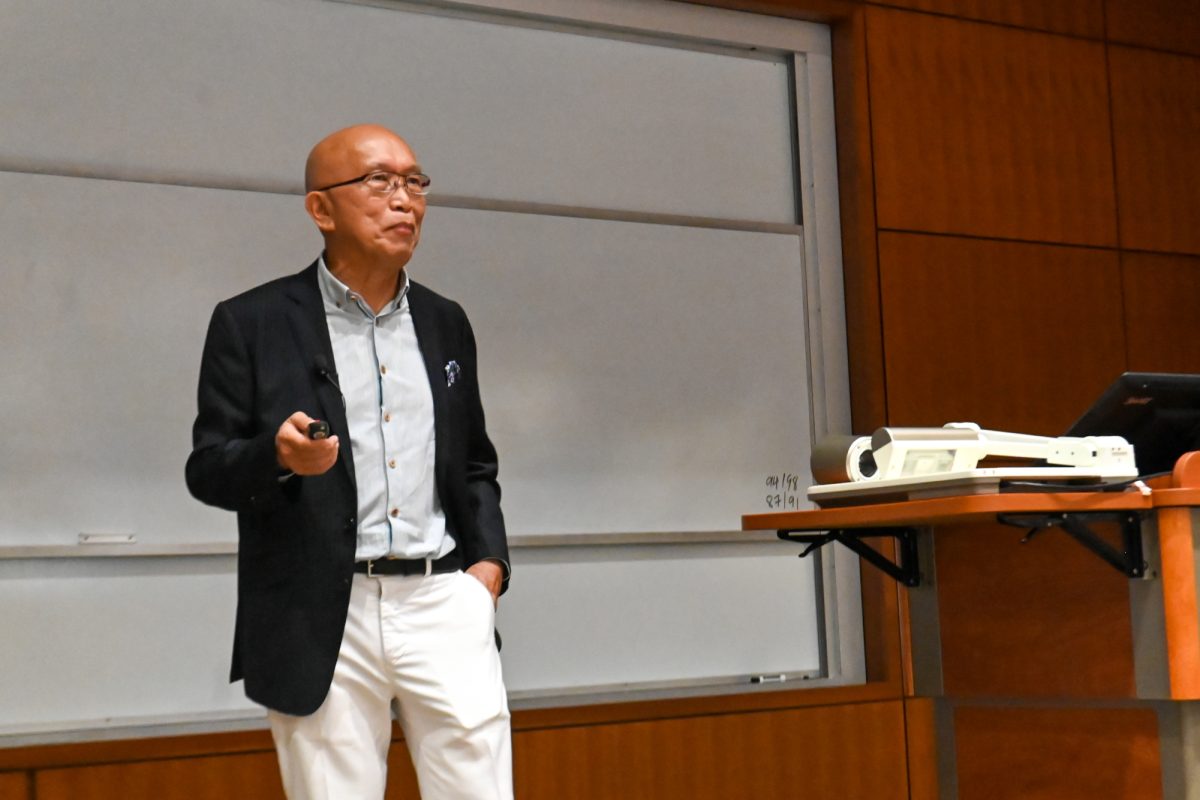Peace Corps is not for whining, little wimps
October 13, 1998
In 1967, my friends and I were protesting the Vietnam War with peace signs hung around our necks and sewn to our ragged bellbottoms.
We wore flowers in our hair and pasted flower stickers on everything with a smooth surface, including our cars and our refrigerators.
We talked about love and peace and flower-power while our parents talked about the length of our hair and the amount of skin we were showing. And still, a war raged on. Maybe it was that youthful aversion to war that made me want to join the Peace Corps, I don’t know. I was an incurable idealist and I still am.
It started on October 14, 1960. John F. Kennedy was campaigning for the presidency when he first proposed the idea of the Peace Corps to a group of 10,000 college students at the University of Michigan.
Some say it was a late night brainstorm that turned into a viable program, but it gives new meaning to his well-known words: “And so, my fellow Americans: ask not what your country can do for you — ask what you can do for your country … “Since that time, over 150,000 people of all ages, races, religions and ethnicities have served in the Peace Corps in 132 countries.
While I am a great admirer of Kennedy, I’m not sure that he truly believed that placing young Americans in developing countries was going to promote world peace.
I’m not even sure he believed that the contributions we Peace Corps volunteers might make in our individual assignments would make a significant difference in the lives of the people we met in those countries.
But I am sure, because Kennedy was a man of vision, that he believed living overseas and participating in the lives of people whose lives were different than ours would teach us something important about ourselves.
For example, when I joined the Peace Corps in 1977, I had just finished a year of work after college. I was making great money and was recognized for my contributions at work.
I saw the women’s movement, which was really building steam at the time, as a totally unnecessary commotion. I argued that if women did a good job, they would be treated fairly — like I was. I was young and naive, I know. It wasn’t until I arrived in Kabul, Afghanistan, that I recognized the importance of the women’s movement.
In 1977, Muslim women had no rights whatsoever and I, as an American woman, lost many of my own “inalienable” rights the day I set foot in that country.
Suddenly, the women’s movement wasn’t just about making my life better, but about ensuring that women everywhere have equal rights to “life, liberty, and the pursuit of happiness.” Muslim women today are still fighting for some of the most basic rights we American women take for granted … rights which, according to my research, Muslim women once had a very long time ago but lost.
While living in Kabul, I had daily opportunities to interact with Afghan women. My friends and students were all interested in learning about America and the lives of women in the U.S.
But their personal histories, their day-to-day life stories, their fears and battles and accomplishments, were far more evocative than anything I could tell them.
Americans have a terrible reputation overseas, so maybe I did give my friends a better understanding of the U.S. And maybe my stories encouraged these women to fight for their rights as citizens.
I hope so, but I will never know. I do know, however, that my life was changed. No longer a passive observer, I’ve even been accused of being a militant feminist.
This is because I know now that the fight for women’s rights in the U.S. is a fight for women’s rights all over the world. I thank the women of Afghanistan for opening my eyes.
Maybe that is what President Kennedy intended.
Being better informed makes us better citizens; being better citizens makes us more active participants in American society and public policy — both international and domestic. We can’t continue to be complacent, comfortable in our cozy houses and secure jobs, so sure of our guaranteed civil rights.
America is not perfect. We have a lot of work to do at home, but maybe a little time helping others will give us a better perspective. Joining the Peace Corps is the most important thing I have done in my life.
I may not have been entirely conscious of what was to be lost or gained in the process, but that was all part of the biggest adventure of my life. It’s not for everyone. No wimps allowed. Whining is not tolerated.
And not everyone who applies is accepted. (Of the 5,000 original applicants in 1961, only 51 were selected.)
You can learn more about the Peace Corps on the Internet (http://www.peacecorps.gov). But you can only learn more about yourself by taking chances, by stepping out of your comfort zone. Is the Peace Corps for you?
Kata Alvidrez is a graduate student in English from Los Angeles, Calif.






